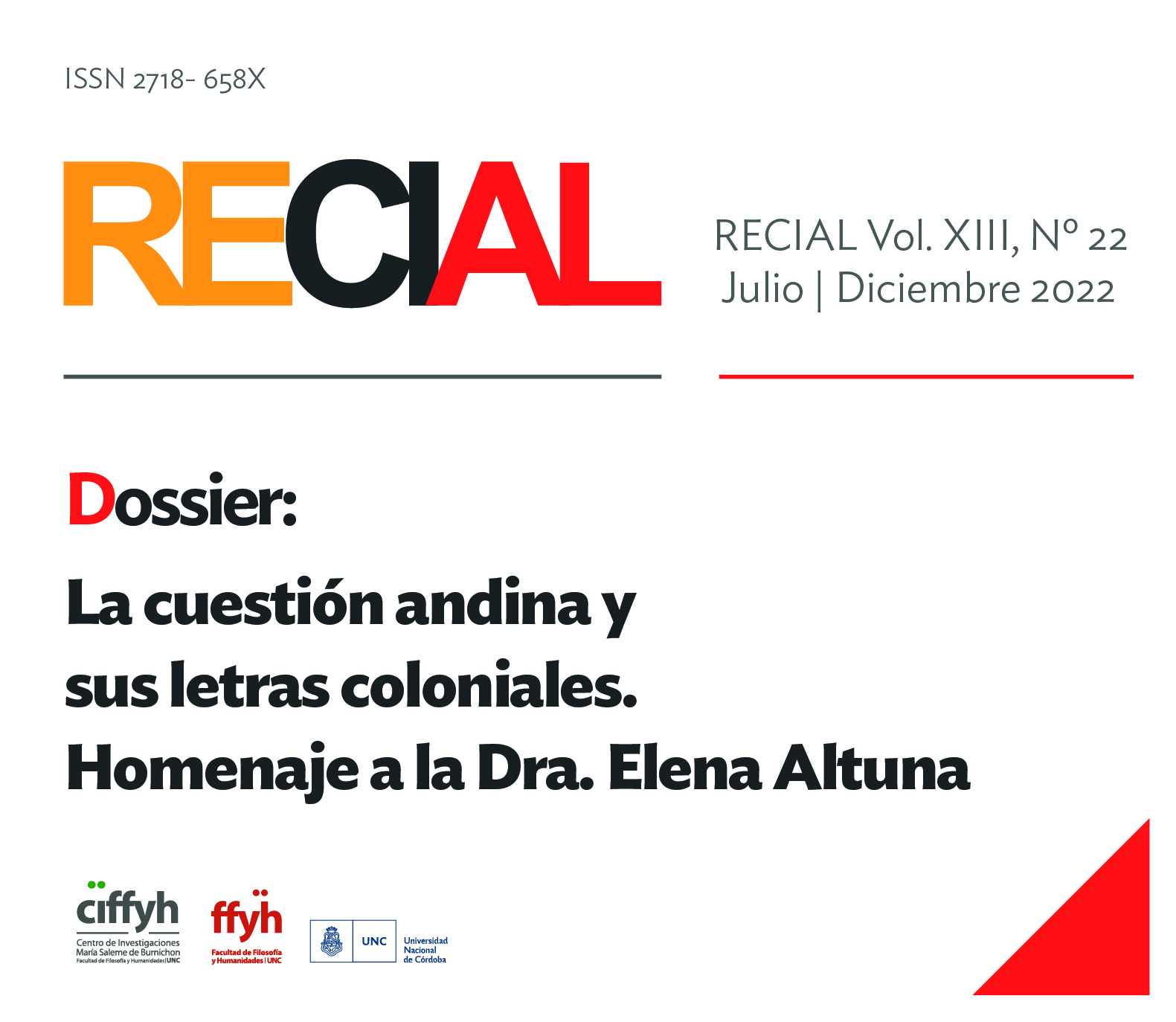The reinterpretation of the romantic genius in André Breton’s Nadja
DOI:
https://doi.org/10.53971/2718.658x.v13.n22.39626Keywords:
literary studies, surrealism, romantic geniusAbstract
This article analyzes the novel Nadja, a masterpiece of the literary surrealism, written by the french writer André Breton. Contrary to the scientific contributions made by the field of psychoanalysis, this text aspires to study the text from the concept of genius, a fundamental notion for the romantic esthetic (with which surrealism bears deep similarities), with the aim of making a novel contribution to the field of literary studies, and its dialogue with the philosophy. The work will be divided into three clearly differentiated parts: an introduction, in which the figure of André Breton will be concisely discussed, as well as some assumptions of surrealism; then, the concept of romantic genius will be described based on some current research; finally, an attempt will be made to structure a pertinent interpretation of the novel using the notion of romantic genius to study the relationship between the character of Nadja and the narrator.
References
Aizpún Bobadilla, T. (1997). El genio romántico y la búsqueda de unidad. En Romero de Solís, D. y Díaz- Urmeneta Muñoz, J. B. (coords.). La memoria romántica (pp.19-28). Sevilla: Universidad de Sevilla.
Breton, A. (2021). Nadja (trad. José Ignacio Velázquez). Madrid: Cátedra.
Breton, A. (2001). Manifiestos del surrealismo (trad. Aldo Pellegrini). Buenos Aires: Editorial Argonauta.
Cagigas, Á. (2007). Una visión de la locura: el caso Breton. Revista de la Asociación española de neuropsiquiatría, XXVII (99), 93-97, ISSN 0211-5735. Consultado el 2 de julio del 2022. Disponible en: https://www.revistaaen.es/index.php/aen/article/view/15985.
Cristiá, F. A. (2021). El genio poético del romanticismo temprano. La manifestación creativa como impulso hacia la infinitud. Revista Filosofía de la Universidad de Costa Rica, LX(157), 75-84, ISSN 0034-8252. Consultado el 2 de julio del 2022. Disponible en: https://revistas.ucr.ac.cr/index.php/filosofia/article/view/47485/46910.
Escarpit, R. (1974). Historia de la literatura francesa. Ciudad de México: Fondo de Cultura Económica.
Hubert, R. R. (1969). The coherence of Breton’s Nadja. Contemporary literature, X(2), 241-252. ISSN
Loselle, A. (2010). From convoluted to convulsive messages: a seismometrical reading of André Breton’s Nadja. Contemporary french and francophone studies, XIV(4), 401-408
Real, E. (1994). Siglo XX. Introducción. En Del Prado, J. (coord.), Historia de la literatura francesa (pp.1075-1109). Madrid: Cátedra.
Romero, J. (1995). Nullum magnum ingenium sine mixtura dementiae: el mito del genio y la locura. Arte, individuo y sociedad, VII(7), 123-140. ISSN 1131-5598. Consultado el 2 de julio de 2022. Disponible en: https://revistas.ucm.es/index.php/ARIS/article/view/ARIS9595110123A.
Velázquez Ezquerra, J.I. (1994). La poesía. En Del Prado, J. (coord.), Historia de la literatura francesa (pp.1169-1257). Madrid: Cátedra.
Downloads
Published
Issue
Section
License

This work is licensed under a Creative Commons Attribution-NonCommercial-ShareAlike 4.0 International License.
Aquellos/as autores/as que tengan publicaciones en esta revista, aceptan los términos siguientes:
- Los/as autores/as conservarán sus derechos de autor y garantizarán a la revista el derecho de primera publicación de su obra, el cuál estará simultáneamente sujeto a la Licencia de reconocimiento de Creative Commons que permite a terceros compartir la obra siempre que se indique su autor y su primera publicación esta revista.
- Los/as autores/as podrán adoptar otros acuerdos de licencia no exclusiva de distribución de la versión de la obra publicada (p. ej.: depositarla en un archivo telemático institucional o publicarla en un volumen monográfico) siempre que se indique la publicación inicial en esta revista.
- Se permite y recomienda a los/as autores/as difundir su obra a través de Internet (p. ej.: en archivos telemáticos institucionales o en su página web), luego de su publicación en la revista. (Véase El efecto del acceso abierto).





